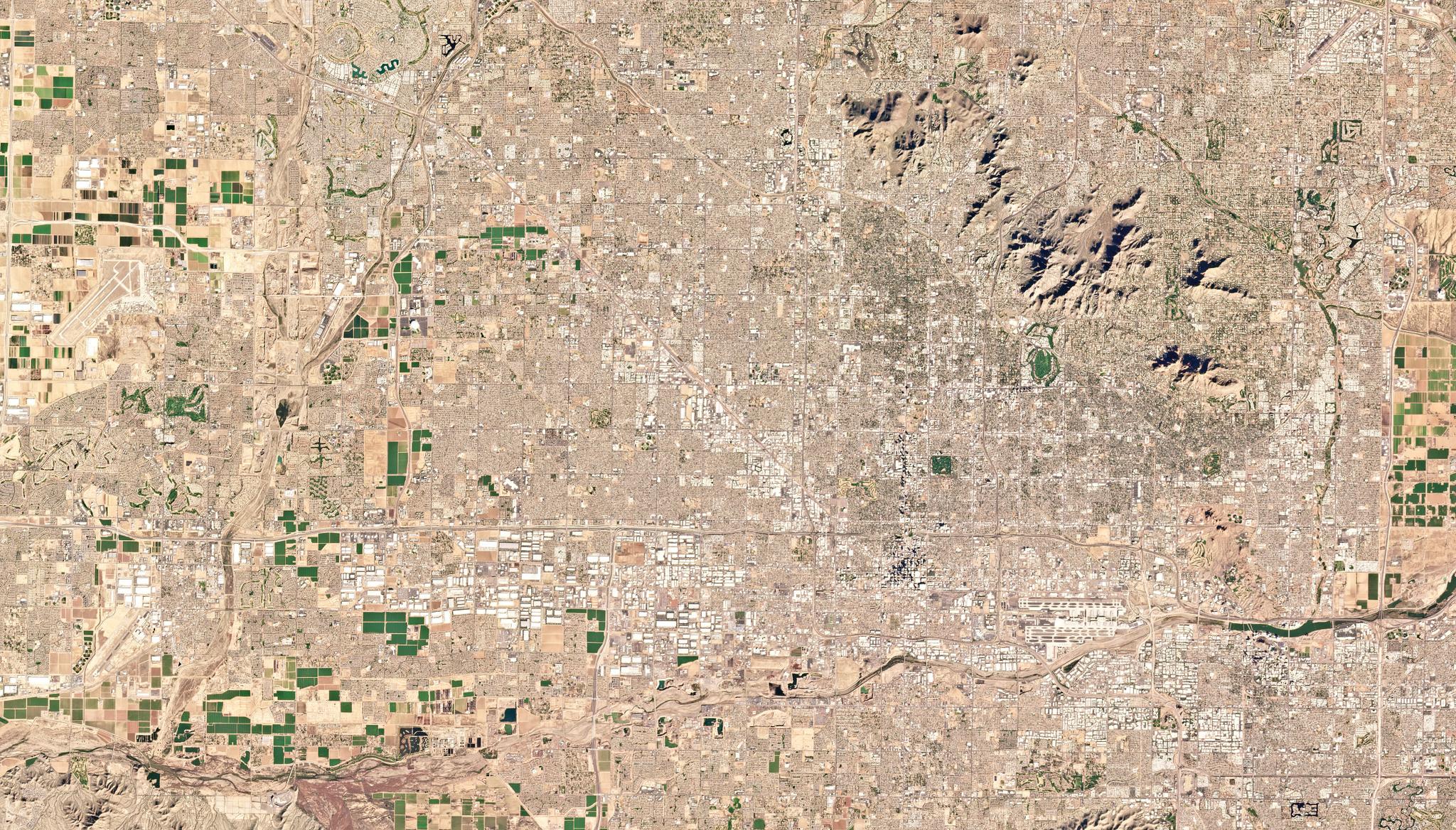Water Conservation in Irrigation of Urban Parks
Urban parks in desert areas often use copious amounts of water for maintaining grass and trees. In Phoenix, Arizona, two primary irrigation methods are used: sprinklers and flooding. A new study in Ecohydrology led by Mercedes Kindler compares the benefits and drawbacks of these methods. They also analyze the impact of using residential green waste compost in place of chemical fertilizer, using a combination of multi-year monitoring with PlanetScope NDVI, in situ soil moisture and weather data, and computer modelling. Their study results showed that significant reduction in water usage is possible—as much as 30%—with pros and cons to both the sprinkler and the flood irrigation methods. Compost does not appear to aid in either water conservation or health of vegetation in the parks compared to traditional chemical fertilizers. Co-author Enrique Vivoni of Arizona State University said on Twitter, “By collaborating with managers, water conservation is possible in urban parks.” The full study can be found in Ecohydrology.

Ready to Get Started
Connect with a member of our Sales team. We'll help you find the right products and pricing for your needs


